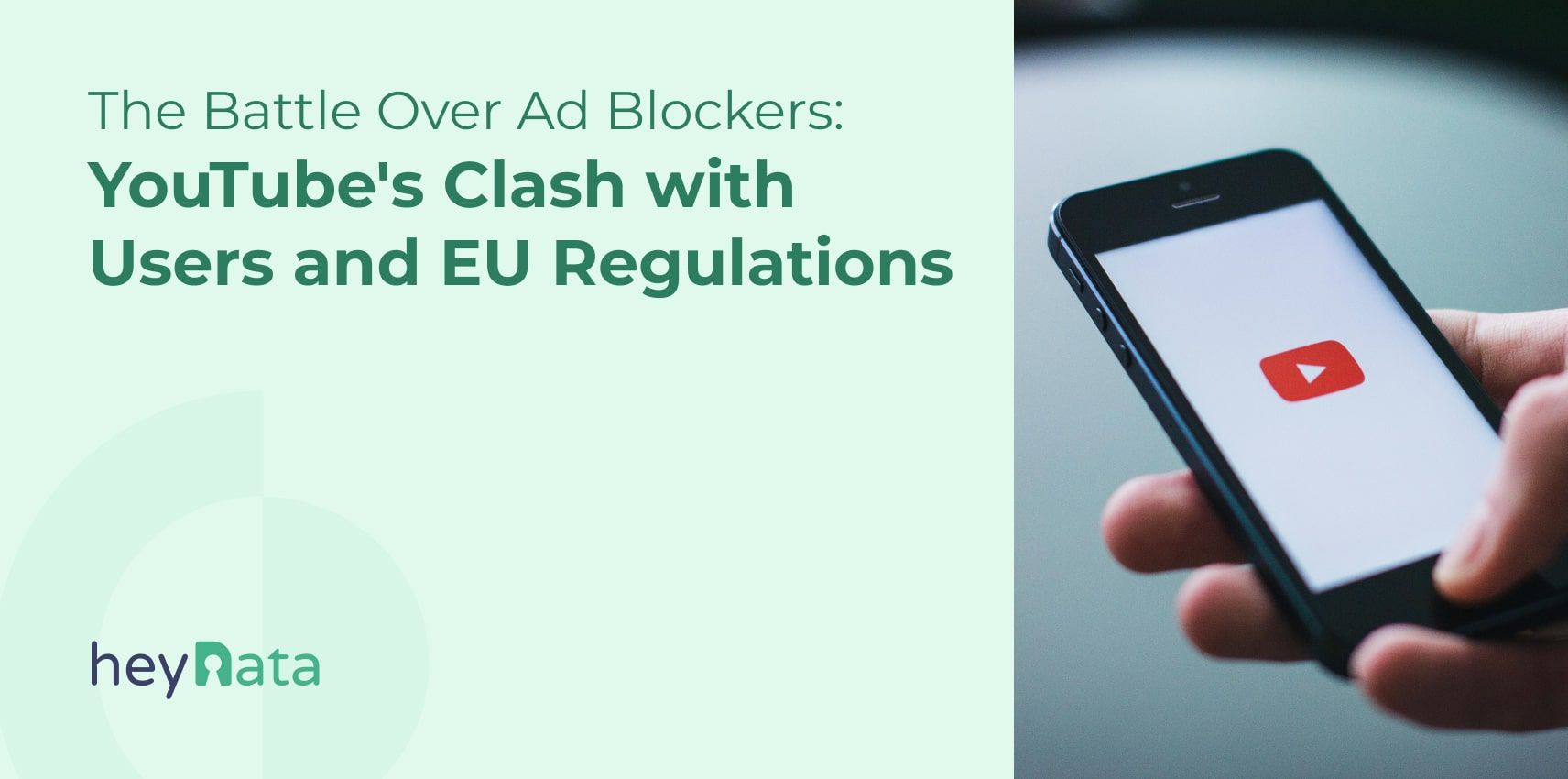
The Battle Over Ad Blockers: YouTube's Clash with Users and EU Regulations
Ad blockers have become the battleground for digital privacy and content accessibility. As users increasingly adopt ad blockers to enhance their browsing experience, the clash between these users and platforms intensifies. Furthermore, amidst this skirmish, the European Union's regulations have entered the fray, adding complexity to the ongoing debate.
Table of Contents:
The Battle Over Ad Blockers: YouTube's Clash with Users and EU Regulations
Ad blockers have become the battleground for digital privacy and content accessibility. As users increasingly adopt ad blockers to enhance their browsing experience, the clash between these users and platforms intensifies. Furthermore, amidst this skirmish, the European Union's regulations have entered the fray, adding complexity to the ongoing debate.
Related topic: EU-US Data Privacy Framework: Protecting data in a globalized world
YouTube, a digital giant, heavily relies on advertising revenue. However, as ad blockers gained popularity, users gained the ability to bypass YouTube's ads, disrupting its revenue model. This led to a clash of interests between the platform's need for monetization and users' desire for uninterrupted content consumption.
Privacy concerns loom large in this scenario as YouTube's recent crackdown on ad blockers has sparked a contentious conflict between the platform's monetization strategies and users' quest for ad-free experiences. Initially, YouTube's move aimed to safeguard creators' earnings by discouraging ad blocking. However, this initiative escalated swiftly, leading to an intensified effort to prevent users with ad blockers from accessing content.
YouTube's Clash with Users and EU Regulations
This confrontation hasn't escaped the attention of privacy advocate Alexander Hanff, who raised concerns with the European Commission about the use of ad blocker detection tools as early as 2016, according to The Verge. The commission initially confirmed that such scripts fall under the ePrivacy Directive, requiring user consent before deploying such technologies. Joining the advocacy, Patrick Breyer, a digital rights advocate and EU Parliament member, also questions the legality of ad blocker detection systems under the ePrivacy Directive. Of course, Google, which owns YouTube, denied these allegations, arguing that their methods are intended to maintain the platform's revenue and are not designed to invade users' privacy.
If the European Commission determines that YouTube's ad blocker detection system violates the EU's ePrivacy Directive, consequences could include fines and mandates for altering this feature. The conflict between YouTube's monetization strategies and users' desire for control over their ad experiences underscores the ongoing tension between content platforms, advertising, and user preferences for privacy and ad-free browsing.
Related topic: Navigating the Road of Data Privacy: What Your Car Knows About You
Now, addressing the critical question: Do ad blockers protect your privacy?
Ad blockers can indeed limit tracking from ad platforms by obstructing the loading of tracking scripts and cookies. This curtails the data collection mechanisms used to monitor users' online behavior for targeted advertising. Consequently, users experience reduced exposure to targeted ads and potentially avoid being part of extensive profiling.
However, the privacy protection offered by ad blockers isn't absolute. Some blockers, while proficient in eliminating ads, might fall short in addressing all tracking methods. Certain trackers and cookies may still bypass these blockers, permitting some level of data collection. Additionally, the catch-all approach of some ad blockers might block both benign and malicious scripts, potentially impacting the functionality of certain websites.
Moreover, there exists a paradox within the ad-blocking landscape. While users turn to these tools seeking privacy, some ad blockers, particularly free ones, might engage in their own data collection practices. This irony raises concerns about the very tools meant to protect user privacy, potentially compromising it themselves.
To fortify online privacy beyond ad blockers, users can explore complementary strategies. Utilizing privacy-focused browsers like Brave, DuckDuckGo, Tor Browser or configuring browser settings to limit tracking can bolster defenses against intrusive tracking. Embracing Virtual Private Networks (VPNs) adds an additional layer of encryption, shielding user data from prying eyes.
Related topic: Verarbeitungsverzeichnis: Die Schlüsselrolle für Datenschutz und Transparenz in der modernen Arbeitswelt
Final Notes
The clash between platforms like YouTube and users over ad blockers represents a multifaceted struggle encompassing revenue models, user experience, and privacy concerns. Fortunately, YouTube's ad blocker detection system is further complicated by the evolving landscape of privacy regulations, with the help of the GDPR, which aims to give users more control over their data.


